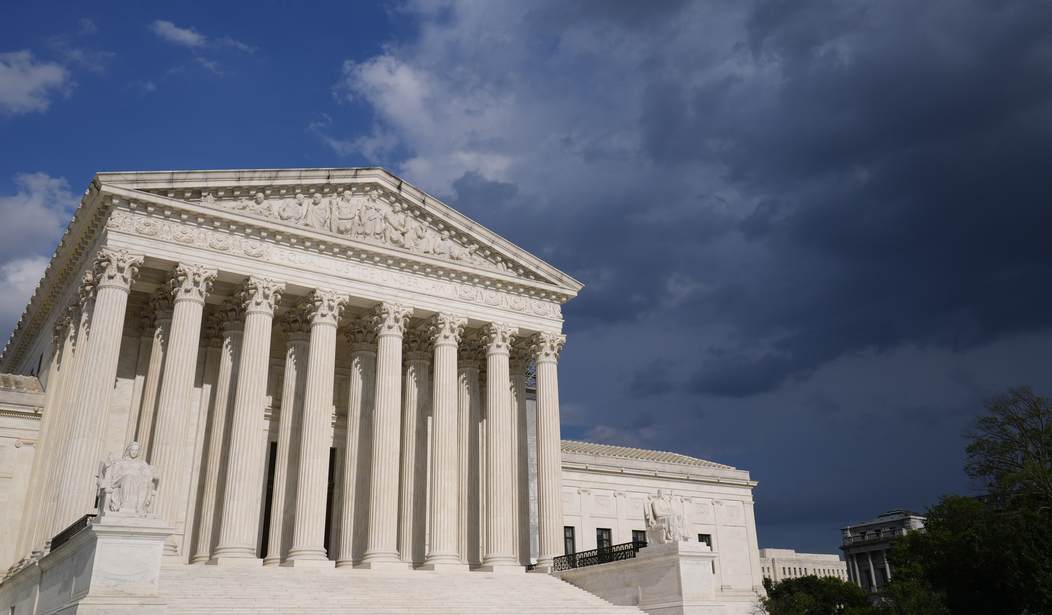Next week, the U.S. Supreme Court will hear oral arguments in the case of United States v. Skrmetti. At issue for the Court to decide is whether states, like Tennessee in this case, can restrict transgender "care" for minors. Opponents of Tennessee's Senate Bill 1 argue that such laws violate the Equal Protection Clause of the 14th Amendment.
Ahead of oral arguments, Townhall spoke to Tennessee's Senate Majority Leader Jack Johnson (R) about his thoughts on the case. Johnson also authored SB 1, and did so while keeping in mind how crucial it is that the bill be constitutional. Johnson himself said, "I don't think it should be controversial, but it is," acknowledging the high profile topic at hand. "So you certainly anticipate that you're going to face litigation on it, so you're not just trying to craft good public policy, you're also trying to craft something in a way that it will be judicially defensible," Johnson continued.
While the bill is from 2023, Johnson explained that the journey started really in late 2022. Undercover reporting from Matt Walsh found that the pediatric clinic at Vanderbilt University was involved in transgender reassignment surgeries and drugs to minors with harmful effects due to how profitable it was. Walsh then testified before the Tennessee legislature.
The bill drew strong and swift opposition from high profile parties, including the American Civil Liberties Union and the Biden-Harris Department of Justice. The Sixth Circuit Court of Appeals, in July of last year, upheld the bill in an opinion by Judge Joe Sutton that Johnson stressed is one that is "very, very well written," especially since, as Johnson described it, the judges "did a really good job of articulating the authority of states to regulate these types of procedures, and certainly the lacking medical evidence of efficacy."
Recommended
Johnson explained that they are looking for the Sixth Circuit's opinion to be upheld and affirmed by the U.S. Supreme Court.
The law mentions several findings about protecting minors. "The legislature declares that it must take action to protect the health and welfare of minors," the bill's text begins. As the text also tellingly goes on to reveal:
(b) The legislature determines that medical procedures that alter a minor's hormonal balance, remove a minor's sex organs, or otherwise change a minor's physical appearance are harmful to a minor when these medical procedures are performed for the purpose of enabling a minor to identify with, or live as, a purported identity inconsistent with the minor's sex or treating purported discomfort or distress from a discordance between the minor's sex and asserted identity. These procedures can lead to the minor becoming irreversibly sterile, having increased risk of disease and illness, or suffering from adverse and sometimes fatal psychological consequences. Moreover, the legislature finds it likely that not all harmful effects associated with these types of medical procedures when performed on a minor are yet fully known, as many of these procedures, when performed on a minor for such purposes, are experimental in nature and not supported by high-quality, long-term medical studies.
(c) The legislature determines that there is evidence that medical procedures that alter a minor's hormonal balance, remove a minor's sex organs, or otherwise change a minor's physical appearance are not consistent with professional medical standards when the medical procedures are performed for the purpose of enabling a minor to identify with, or live as, a purported identity inconsistent with the minor's sex or treating purported discomfort or distress from a discordance between the minor's sex and asserted identity because a minor's discordance can be resolved by less invasive approaches that are likely to result in better outcomes for the minor.
(d) The legislature finds that medical procedures are being performed on and administered to minors in this state for such purposes, notwithstanding the risks and harms to the minors.
Meanwhile, when it comes to the point raised above about "harmful effects," it's worth reminding that opponents of such a bill are looking increasingly worse. It has since been revealed, just last month in fact, that Dr. Johanna Olson-Kennedy admitted to The New York Times that she withheld a $10 million taxpayer-funded study on the impact of puberty blockers on children, reportedly because it would not look too good for those who advocate for such surgeries.
Studies do show that most children who may think they are transgender grow out of it. There's also been heartbreaking stories of young people who regret the transition process they went through as minors, including Chloe Cole and Isabelle Ayala.
Next Wednesday's oral arguments will especially be worth watching, given the hot profile topic and precedence involved as to if states can set their own laws to protect minors from procedures involving not merely hormone therapy, but also sterilization and genital mutilation.
Tennessee has already been regarded as a model by other states, as Georgia and South Carolina have modeled their legislation after SB 1 in Tennessee. "Certainly, if it is upheld, if our law is upheld, that would certainly be instructive to all states as to how they can, if they wish to pursue similar types of legislation, how they can do so and know that there will be case precedence," Johnson also explained to Townhall.
























Join the conversation as a VIP Member